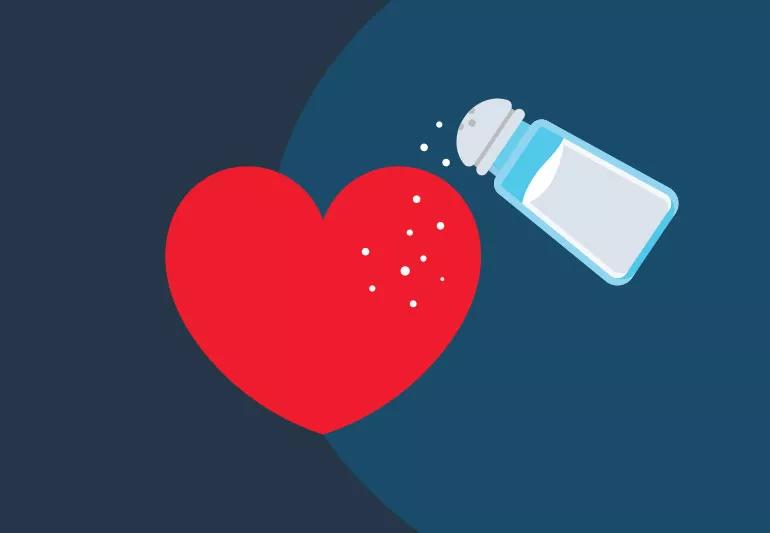The scoop on low-sodium diets

Image content: This image is available to view online.
View image online (https://assets.clevelandclinic.org/transform/28881c5c-ee19-48a3-83d7-8639478c75b3/saltAndHeart-1202708988-770x553-1_jpg)
Salt and your heart
Forget the sweet tooth. Sometimes, your tongue craves something savory like a salty pile of pretzels or chips. But you’ve also heard too much salt (or sodium) can be bad for the heart.
Advertisement
Cleveland Clinic is a non-profit academic medical center. Advertising on our site helps support our mission. We do not endorse non-Cleveland Clinic products or services. Policy
So, then, how much salt is too much? And why does it matter? Cardiologist Luke Laffin, MD, answers your saltiest questions and gives us the low-down on sodium, your heart and your health.
Sodium is a mineral that we all need. It plays a role in the healthy function of nerves and muscles and helps keep your body’s fluid levels in proper balance.
But that fluid balance is delicate. “Too much sodium can cause fluid retention, which can increase blood pressure,” says Dr. Laffin. And high blood pressure is a major risk factor for heart attack, stroke and heart failure.
So keep tabs on your sodium, especially if you have high blood pressure or heart disease or are at risk of developing them.
How much sodium is too much? A little goes a long way, according to Dr. Laffin. Here’s what the guidelines say.
Aim to keep sodium intake below 2,300 milligrams (mg) per day. “That’s equal to about 1 level teaspoon of salt,” Dr. Laffin says.
“Think about that 2,300 mg as a debit card you get every morning. Don’t spend it all in one place,” he adds. “And if you go over, you’ll pay interest — in the form of higher blood pressure.”
“Almost everyone with high blood pressure should be on a low-sodium diet,” Dr. Laffin says. That means capping daily sodium at 2,300 mg at the highest. “If you can get it down to less than 1,500 mg per day, that’s ideal,” he adds. Lowering blood pressure is an important way to reduce your risk of heart disease.
Advertisement
Doctors recommend that people with heart failure also eat a low-sodium diet. Too much salt can cause fluid to build up around the heart and lungs, making the heart work harder.
Evidence suggests that a limit of 2,000 mg per day of sodium is a good goal for people with heart failure, especially if they also have high blood pressure. But there’s an important caveat. “Some data suggests very low levels of sodium may lead to worse outcomes in people with heart failure, so discuss sodium intake with your healthcare provider,” Dr. Laffin says.
Most people think of salt as the stuff that comes out of a shaker. But that makes up a surprisingly small fraction of the sodium in an average diet. Most of the sodium we swallow comes from prepared and packaged foods.
Dr. Laffin offers these strategies for keeping sodium levels in the healthy range:
Reading labels and tweaking your diet might sound daunting. But like anything else, it gets easier with practice. It’s a habit your heart will thank you for.
Advertisement

Delivered every Tuesday!
Sign up for our Health Essentials emails for expert guidance on nutrition, fitness, sleep, skin care and more
Learn more about our editorial process.
Advertisement
Having underweight, having overweight and having obesity can be dangerous for your heart
Resolve to move a little more, drink a little less, eat a little healthier, sleep a little better and destress a lot
Avoid smoking, eat a good diet and exercise to prevent your heart from aging prematurely
Enjoy the holidays while keeping your heart healthy
This simple burst of hard work can put some of us at risk for heart attack
The short answer from an interventional cardiologist
6 tips that can help you slow things down
Diet, exercise and sleep all critical to heart health
Type 2 diabetes isn’t inevitable with these dietary changes
Applying a hot or cold compress can help with pain
Pump up your iron intake with foods like tuna, tofu and turkey